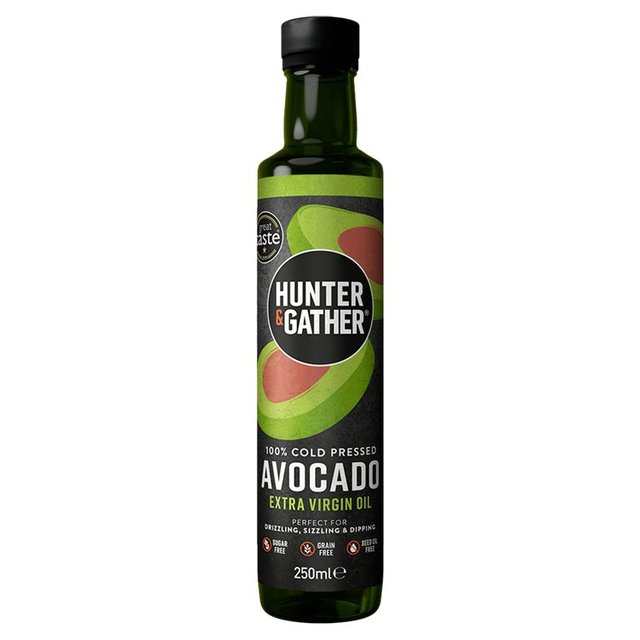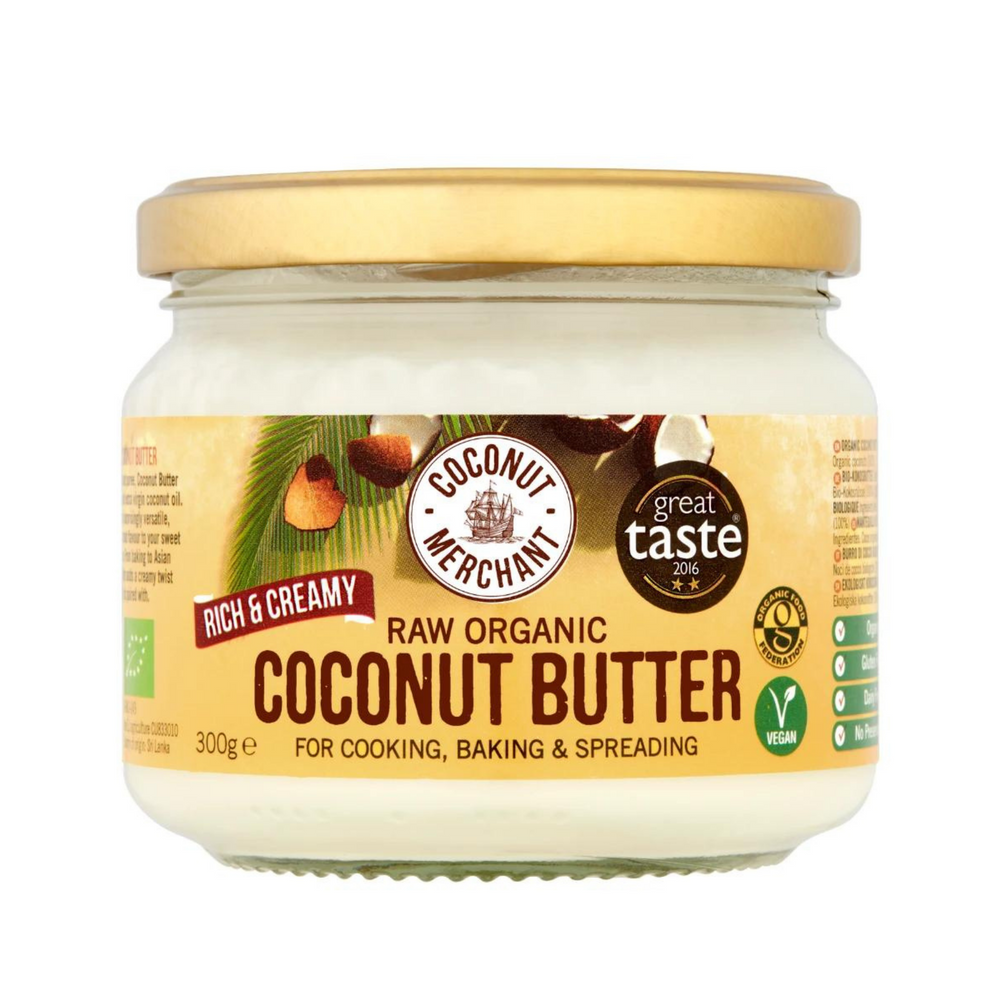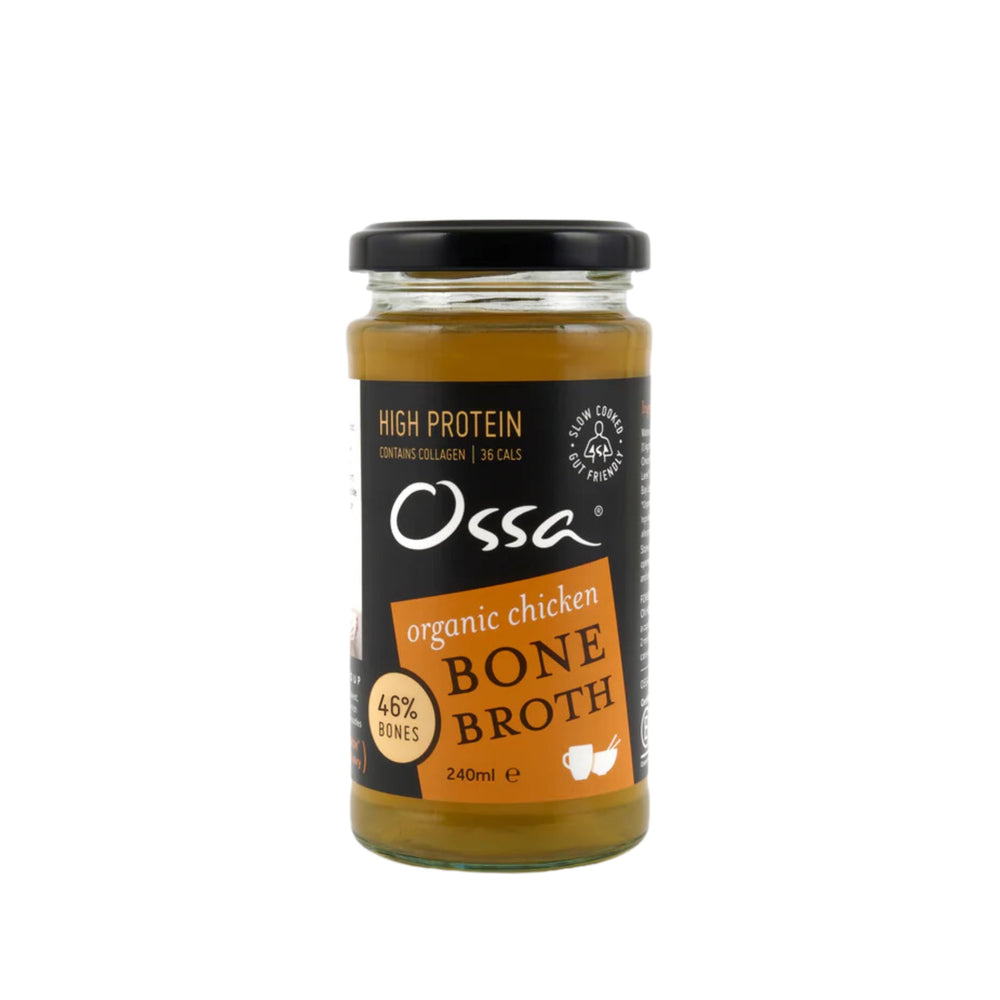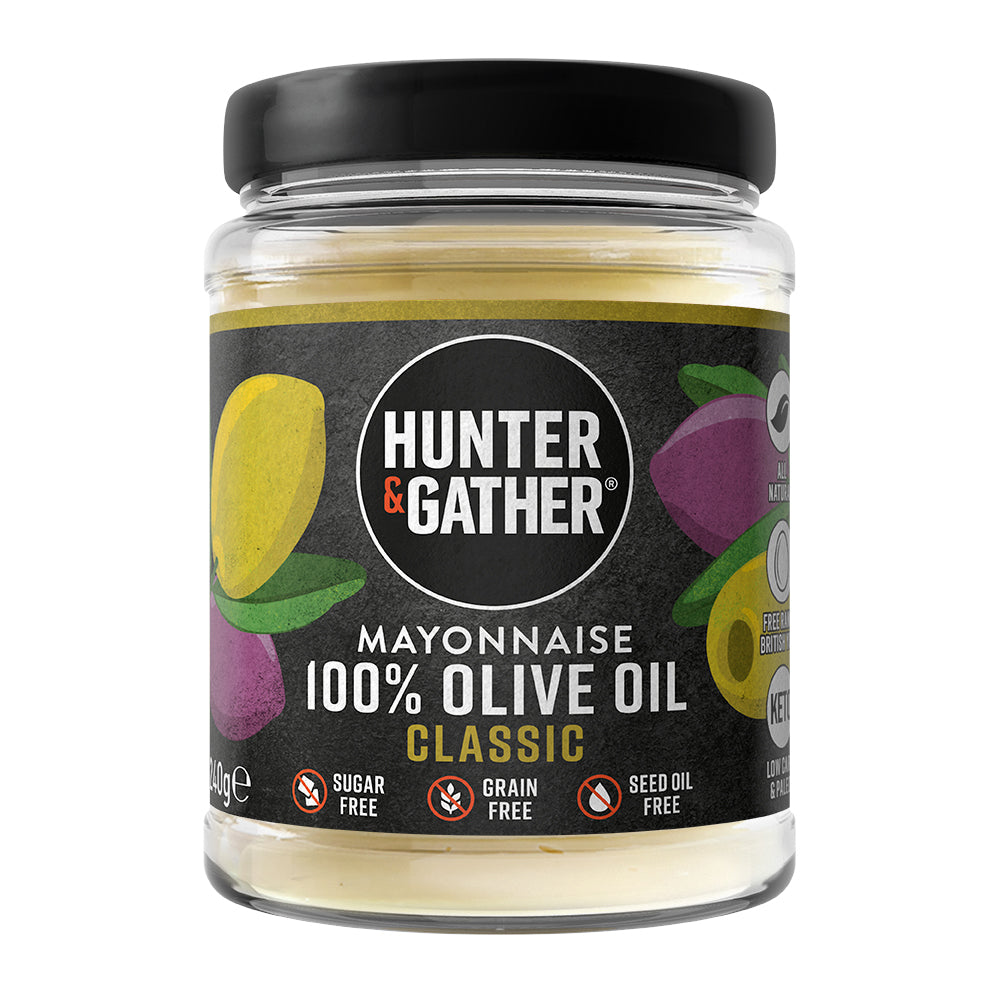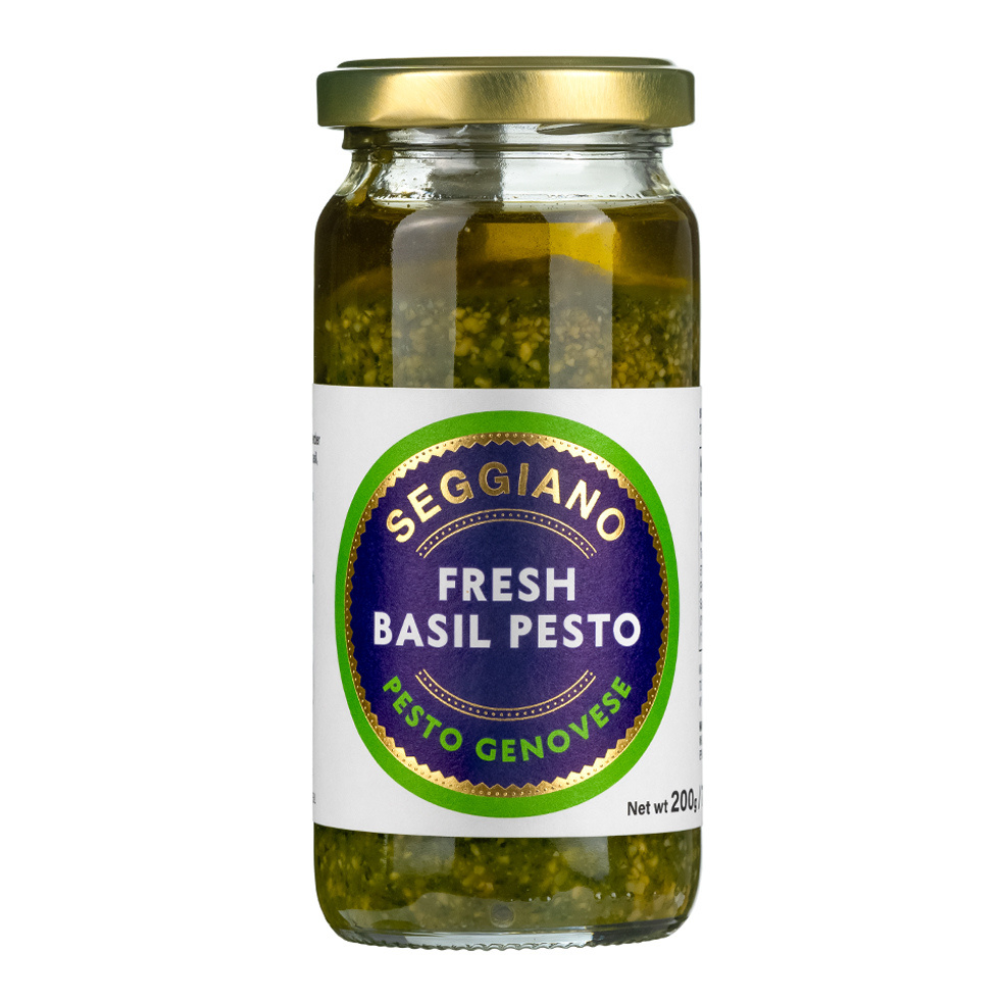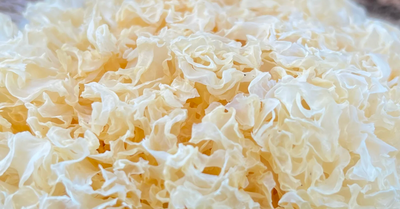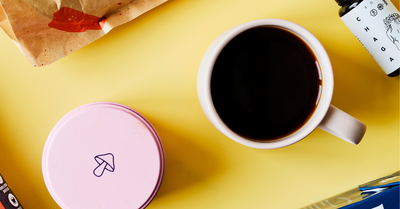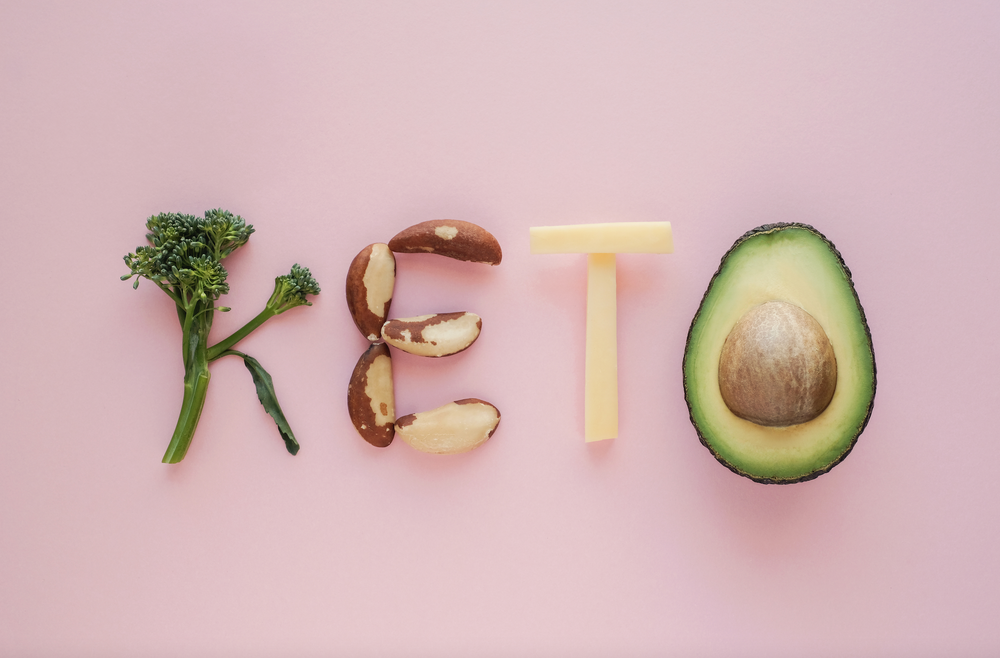
Everything You Need to Know About the Keto Diet

Everything You Need to Know About the Keto Diet
Everything You Need to Know About the Keto Diet
The Keto diet is one of the most popular diets out there for those looking to lose weight and improve their health. In this blog we’re going to give you a rundown of exactly what the Keto diet is, where it comes from, what you can eat, and its benefits.
What is the Keto Diet?
The basis of the Keto diet is essentially to either totally remove or drastically reduce your carbohydrate intake while replacing those missing carbs with extra proteins and fats. There are a bunch of different variations of the Keto diet that have emerged over the years, but the two main ones are the standard ketogenic diet and the high protein ketogenic diet.
A standard ketogenic diet consists of around 75% fat, 20% protein, and 5% carbs.
A high protein ketogenic diet consists of about 60% fat, 35% protein, and 5% carbs.
Ketosis means that your body is making ketones, which are used as an alternative fuel to glucose. When you are on the Keto diet, you will typically be consuming less than 50g of carbs per day, so your body goes into ketosis, burning fat instead of glucose for energy.
How fast you enter ketosis depends on a number of factors, including age, metabolism, and physical activity. However, so long as you’re eating 50g of carbs or less per day, you can usually expect to enter ketosis within 2-7 days.
If you’re looking to kickstart the process of ketosis quickly, then doing more exercise and intermittent fasting can be helpful, as well as maintaining your carbohydrate intake at around 20-50g per day. Taking supplements such as Perfect Keto Base can also be helpful, as these are high-quality ketone supplements that give you energy without causing you to crash later on.
What is Dirty Keto?
Dirty Keto or lazy Keto is when people technically follow the guidelines of the Keto diet, but without prioritising nutrient-dense foods. It typically involves more processed foods, and is followed by people who want the benefits of the Keto diet without having to spend time prepping healthy meals.
By following a dirty Keto diet, you will be missing out on a lot of important micronutrients, and may not even be able to reach or maintain ketosis as processed foods tend to contain a lot of added sugars. Therefore, it is recommended not to follow a dirty Keto diet, and instead to try and eat high quality foods such as grass-fed meat in order to get the maximum benefit out of the diet.
How Many Carbs Can I Have on Keto?
The amount of carbs you can consume each day is the most important aspect of the keto diet.
As a general rule, the ketogenic diet reduces total carbohydrate intake to less than 50g per day and can down to around 20g. The amount of carbs you can have each day while remaining in ketosis can vary from person to person, but typically, carbohydrates should make up around 5%-10% of your total calories..
Keep in mind that as soon as you reintroduce carbohydrates into your system, your body will defer to using them for energy, taking you out of the fat-burning state of ketosis.
How to Get Started on the Keto Diet
If you’re looking to get started on the Keto diet, then you’re going to want some tips to make sure you’re starting off on the right foot. In this section you’ll find a handy round-up of tips that will help to ensure that you are maximising the benefits of this diet.
- Make sure you know exactly what foods you can eat and what foods will stop you being in ketosis. In the next section you’ll find a comprehensive list that will help you with this!
- Stock up in advance with keto-friendly snacks and alternatives. You’ll find a great selection in the WellEasy store!
- Plan and prep your meals at the start of the week to help yourself stick to the diet more easily
- Be prepared for the body to undergo some adjustments, and be aware of the Keto flu - give your body time to adapt!
- Make sure you’re drinking plenty of water
What Can You Eat on the Keto Diet?
The Keto diet can seem pretty restrictive because of the lack of carbs. The good news is, though, that there are actually loads of foods you can still eat, and as long as you’re willing to commit to it fully, it’s probably not as hard as it looks!
Foods to Keep You in Ketosis:
- Grass fed beef
- High quality chicken
- Sustainable seafood (tuna, mackerel, salmon etc.)
- Organ meat (liver, heart, kidney)
- Oils (like coconut oil, avocado oil, MCT oil, ghee, coconut butter & olive oil)
- Keto condiments (bone broth, keto ketchup, keto mayo, pesto, sauerkraut, kimchi etc)
- High quality dairy (plain yoghurt, cottage cheese)t
- Eggs
- Nuts and seeds
- Herbs & Spices
- Low carb vegetables, e.g., cauliflower, broccoli, cabbage, courgette, etc.
- Low carb fruits and berries, e.g., blackberries, lemons, coconut, etc.
- Keto friendly sweeteners (stevia, erythritol, xylitol)
Foods to Avoid to Keep You in Ketosis
- Potatoes
- Legumes
- Grains, e.g., rice, pasta, oats (you can often get keto-friendly versions!)
- Sugary drinks, e.g., fruit juice, fizzy drinks
- Bread
- Crisps, crackers, etc.
- Fruits with high sugar content, e.g., apples, mangoes, pears, etc.
There are a lot of amazing products on the market which can help with keeping the body in ketosis. If you’re struggling with cutting out some of your favourite foods, swapping in their low-carb, ketogenic alternative can be helpful. We’ve listed some of our favourite ketogenic products below to get you started with some great options.
Low-Carb Alternatives to Your Favourite Foods
- Instead of regular pasta, swap for low-carb alternatives such as the Linea6 range or use Shirataki noodles from brands such as Barenaked, Better Than or Yu&Mi.
- Opt for a ketogenic porridge, such as the Brave Ape Co Cacao Keto Low Carb Porridge, which is super tasty
- Incorporate keto-friendly snacks into your day, such as the Pulsin keto bars or Keto Collective Bars or if you like crackers then you can choose from Erbologoy's and Keto 8's range of keto crackers.
- Don’t want to give up rice? Then you’re in luck, because Barenaked foods do a great low-carb alternative
- Can't live without bread? Dillon Organics takes care fo that with their low carb keto breads in three different flavours.
What Fruits Can You Eat on the Keto Diet?
While you can eat some fruits on the keto diet, many are off-limits. This is because most fruits are high in carbohydrates, which could put you over your limit very quickly. Because some fruits are lower in carbs, they may be eaten in moderation. Here are a few of those keto friendly fruits:
- Avocados
- Melons
- Berries (like raspberries, strawberries, and blackberries)
- Lemons
- Limes
What Vegetables Are Keto-Friendly?
Similarly, you’ll want to be careful with which vegetables you can eat on the keto diet in order to stay within your carbohydrate limit. Low-carb veggies like leafy greens and mushrooms are great options, but you should try to avoid starchy vegetables such as beets and potatoes. Here are some great options:
- Asparagus
- Bok choy
- Broccoli
- Cabbage
- Cauliflower
- Celery
- Cucumber
- Green beans
- Romaine lettuce
- Spinach
- Swiss chard
- Zucchini
- Mushrooms
What Snacks Can I Eat on Keto?
Going keto does involve a lot of cooking especially when doing "clean" keto., but what about snacks? It is definitely possible to stick to keto and enjoy snacks but they must also follow the same principles. Here are some ideas:
- Sliced cucumber with yogurt
- Mini frittatas
- Olives
- Cottage cheese topped with almonds
- Pickles
- Greek-style yogurt with blueberries on top
- Hard cheese (e.g. parmesan, aged cheddar)
- Soft cheese (e.g. brie, mozzarella)
- Grilled asparagus sprinkled with feta cheese
- Roasted cauliflower
- Celery sticks with almond butter
- Nuts and seeds
You can also enjoy packaged keto snacks in moderation. Here are a few healthy and convenient options:
- Roam grass fed beef bars
- KetoKeto biscuit bars
- Keto8 morsels
- NOMOSU keto chocolate
- Cheesies Cheddar bites
What Can You Drink on Keto?
You may not be able to drink sugary drinks on a keto diet but there are plenty of options out there to enjoy. Here are some of our favourites:
- Water & sparkling water
- Unsweetened teas
- Coffee
- Bone broth
- Sugar free soft drinks
- Milks
What supplements should I take on a keto diet?
While you don't have to take any extra supplements on a keto diet, you made find it beneficial to add in a few extra supplements to help you while transitioning to a keto diet.
Magnesium - magnesium supplements will help your body to replace the immune-boosting magnesium that you would usually get from foods such as fruits.
MCT Oil - medium-chain triglycerides found in MCT oil may help your body to stay in ketosis.
Digestive Enzymes - these are helpful as they assist your body with the digestion of food, which can be really handy when your body is adapting to the new diet.
Electrolytes— which are essential minerals like sodium and potassium that the body needs to function — are important on the keto diet. That’s because eating a low-carb diet lowers insulin levels, which changes the way the body processes electrolytes.
Exogenous Ketones- made from beta-hydroxybutyrate (BHB), BHB is a naturally occurring ketone body molecule, and is one of the main molecules providing your body with energy in the absence of glucose. Taking exogenous ketones as a supplement is a great way to get into ketosis quickly and enhance your keto diet.Benefits of the Keto Diet
The Keto diet boasts a whole host of benefits, but the main ones are improved levels of mental clarity and energy, potential weight loss, and decreased blood sugar levels. In this section we go into a little more detail on each of these for you.
The Keto Diet and Mental Clarity and Energy
Two of the biggest benefits that people report after embarking on the Keto diet are an improvement in mental clarity and energy. These benefits are seen once the body enters ketosis, as this is when the brain starts using ketones as a fuel source. It’s important to note that your energy levels may fluctuate when you first start the diet, but ultimately the diet is likely to have a positive effect on your mental clarity and energy levels.
The Keto Diet and Weight Loss
Weight loss on the Keto diet is a common benefit that people see, so if this is something you want to achieve, then this may be a good diet for you. As you are restricting carbs, the body begins to burn your glucose stores, which in turn helps you lose weight. This can happen reasonably quickly, so it is a good diet for those looking to lose weight faster. The diet can also help to reduce your appetite, which is another way that it assists with weight loss.
It’s important to note that a healthy weight loss goal is around 1 to 3 pounds per week, as losing weight too fast can be damaging to the body and is generally unsustainable. By sticking to your carbohydrate limit on the Keto diet, you will be likely to lose weight at a healthy rate!
However, the Keto diet is one that doesn’t have the same results in everyone’s body. Because of the high protein and fat content of the diet’s recommended foods, you may gain muscle mass more quickly when doing exercise, which could make you feel as though you are not losing weight. Additionally, the first couple of weeks on the diet are likely to show the greatest change in weight, as you’ll be losing water weight, so if your weight loss slows over time then don’t worry, this is normal!
The Keto Diet and Blood Sugar
When the body is in ketosis, our blood sugar levels tend to decrease significantly. This is because we are consuming less carbohydrates, which is the nutrient that is turned into sugar, and so by doing this we are reducing the likelihood of experiencing blood sugar spikes after eating.
There are a few things that are important to note here, though. First of all, research has only been done into how ketosis and blood sugar levels are related in the short term, not the long term, so this may not be a long term solution for managing blood sugar levels. Secondly, if you have diabetes, you must consult a doctor before embarking on the Keto diet, as you will need to see if it is feasible to create a suitable meal plan first. Finally, when you do add normal levels of carbs back into your diet, you may experience blood sugar spikes as well as weight gain, so it’s important to do this gradually.
Conclusion
Now that you’re an expert on the Keto diet, you’ll be able to make an informed decision on whether it is the right diet for you. Remember to weigh up the pros and the cons, and if at any point during the diet you feel that it isn’t working for you or your body isn’t reacting in the way it should be, then don’t be afraid to walk away from it. The key is that it should make you feel good!


